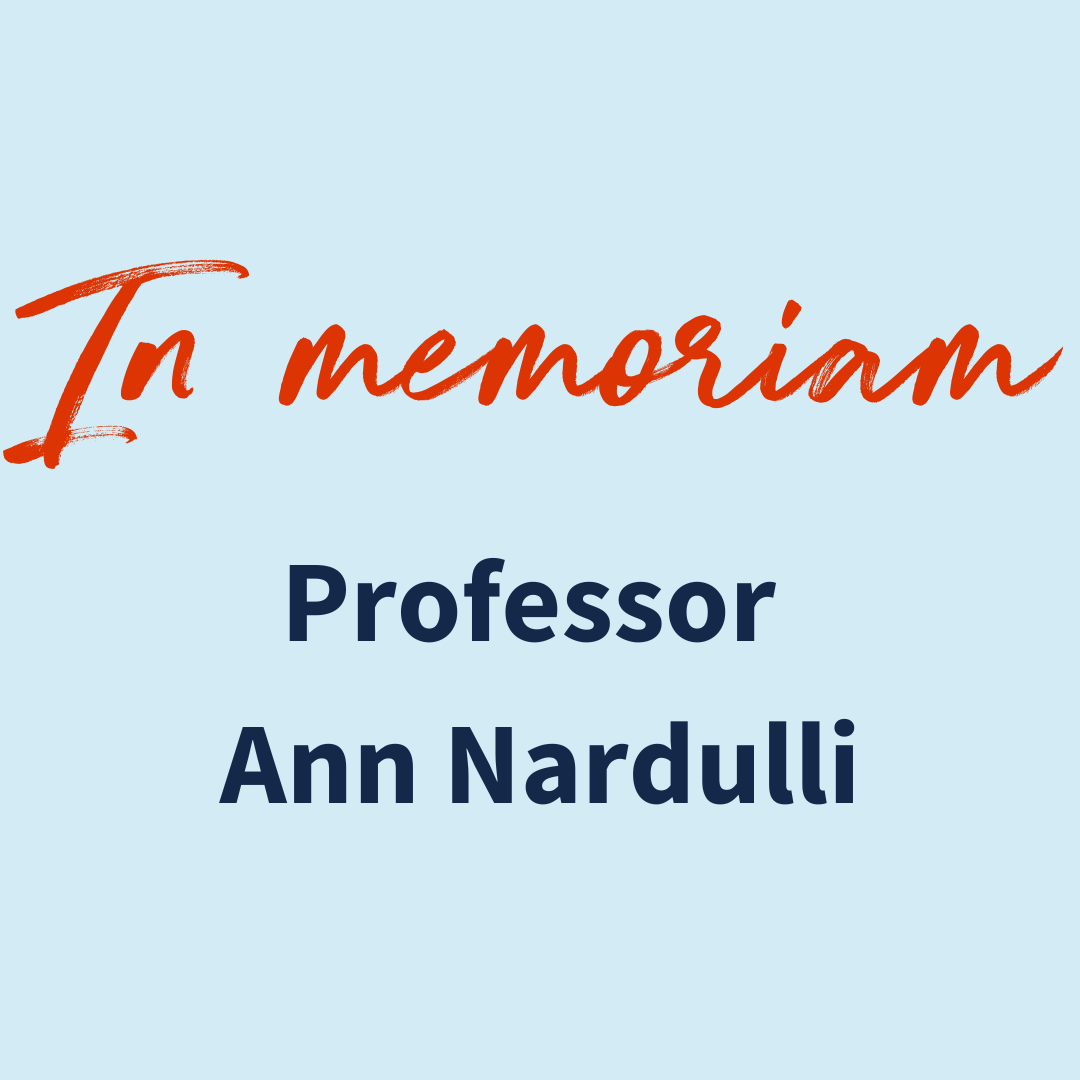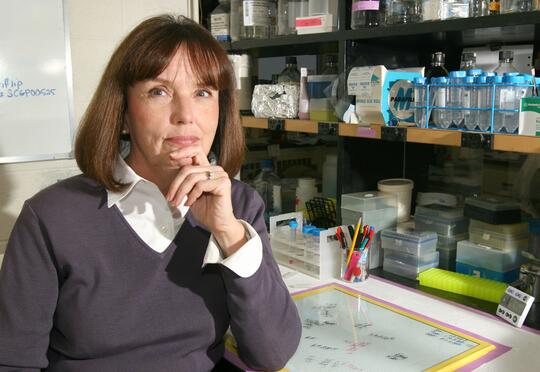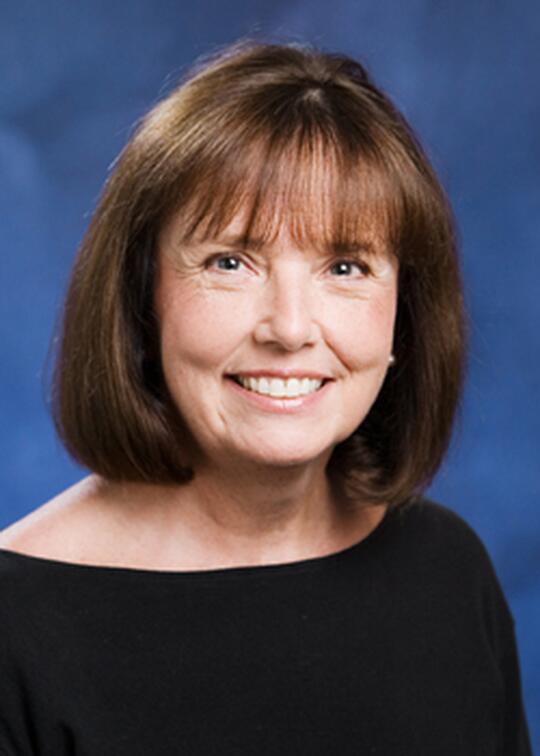
Prof. Ann Nardulli, an endocrinologist and cherished MIP faculty member, passed away on June 27, 2018. To honor Ann’s memory, we present excerpts of a conversation between Ann and Assistant Prof. Catherine Christian, conducted in September 2016 on the occasion of her retirement.
Illinois has played a major role in your life, from graduate school through your faculty career. Could you please briefly describe your educational and career experiences here?
I decided to come back to school and initially was going to pursue a Master’s degree, because I had taught school for 4 years, had been at home for 6 years, and didn’t contemplate a Ph.D. at the time – it seemed a stretch to me. But then I came in and I talked to John Zehr, who was extraordinarily kind and so supportive. I started graduate school when my daughter was in Kindergarten. Once I started, there was no turning back and there was no question that I could do the work, or that I loved the work.
How did being part of the MIP department influence your work? Were there projects you pursued that you might not have done if you were somewhere else?

Absolutely! It really affected the trajectory of our work. I mainly did breast cancer, and then we were interested in proteins that interacted with the estrogen receptor, which mediates the effects of estrogen. And what was really interesting was that there were four oxidative stress proteins that had been shown to be protective in the brain if you cut off circulation to a region of the brain. And these experiments so closely paralleled the work that had been done in Phyllis Wise’s lab, where she showed that estrogen given to an ovariectomized rodent would protect that animal from subsequent ischemia. And so the thought was, “Wow, estrogen could be mediating the effects of these proteins in the brain.” And Lee Cox showed us how to do brain slices, and also Martha Gillette’s lab showed us how to do brain slices. Lori Raetzman showed us how to use microscopy to visualize these proteins. We got uteri from other faculty members so that we could practice doing the immunohistochemistry. Our lab changed directions totally, and it was because of the generosity of people here.
Which discovery that your lab has made was the most surprising to you?
Well, that was one of them. But we had also done some work early on – it was some work where we were trying to figure out which regions of the genome the estrogen receptor was associated with. At that time, there weren’t chromatin immunoprecipitation assays where you could look at the genome, and so what we did was immunoprecipitate the estrogen receptor, isolate the DNA, clone the DNA into plasmids, and then sequence the DNA. And what we found, we thought was gibberish, because there were only about 35 regions that we identified. They were not in regions that we had anticipated they would be located, within 500 base pairs of the transcription start site. They were hundreds of thousands of base pairs away from that! An investigator from Singapore came to visit here, and he said they had been using genomic processes that were just newly developed. And they had done a similar sort of experiment, and had identified over 300 regions of the genome that were associated with the estrogen receptor. I asked him, “Where did you find them?” And he said, “All over!” It really felt like we were trying to do something different, though we were doing it in a very primitive way.
What favorite pieces of advice do you have for students, postdocs, and junior faculty?
Especially at the level of a student, make sure you’re doing what you love. And for the faculty, follow wherever science leads you. Because even though you’ll feel like you’re in water that’s over your head, it just opens up a whole new world. I have always loved learning, and following whatever changes or new things we found in the lab was instrumental in getting everyone revved up and seemed to be the best way to go.

To honor Ann’s legacy, the Molecular and Integrative Physiology Department has established the Ann Nardulli Graduate Student Support Fund. Graduate education was very important to Ann and this fund will provide graduate students with support to enhance their education, such as travel support to present and discuss their research findings at scientific meetings. If Professor Nardulli has touched your life in some meaningful way, please consider donating to this fund.
